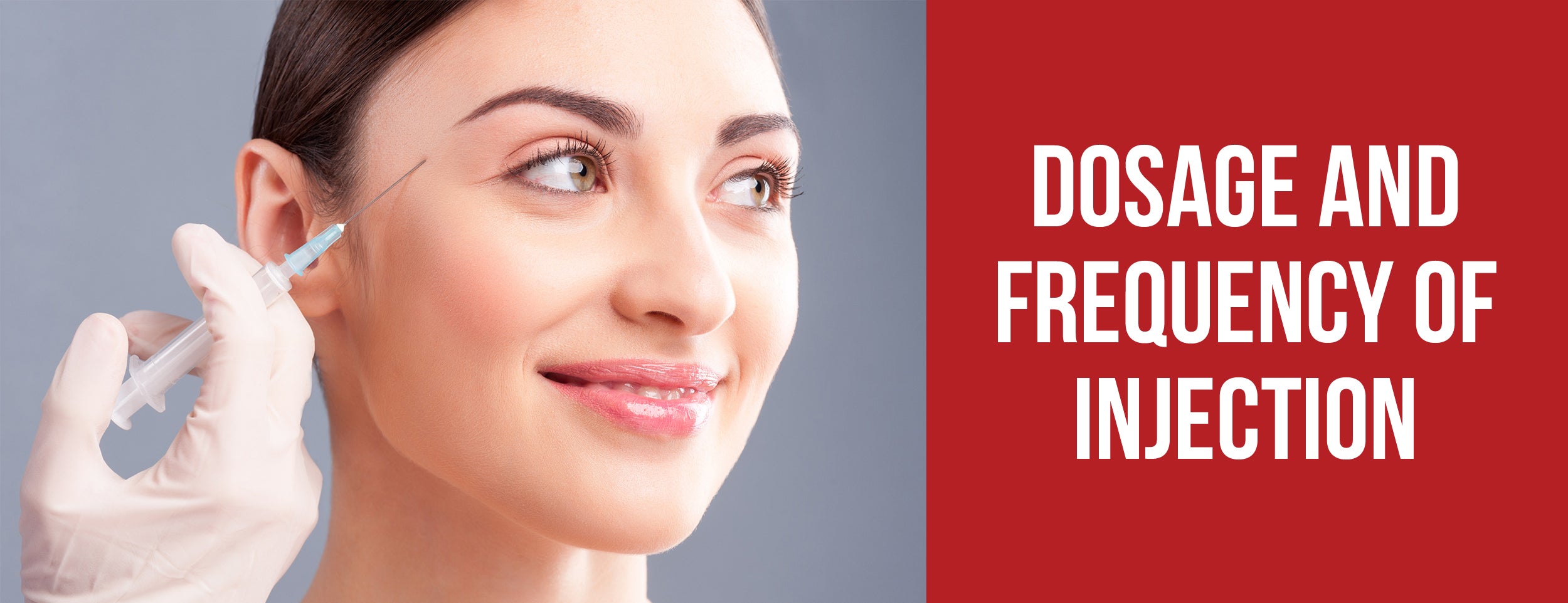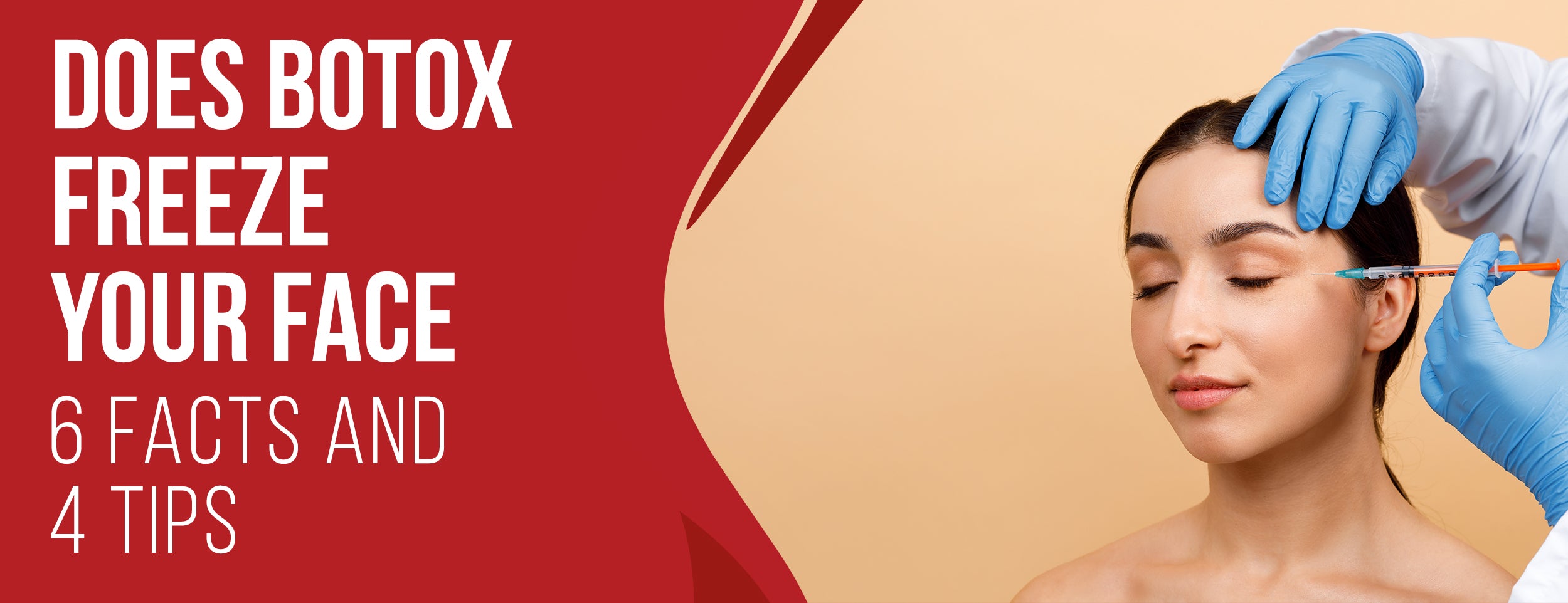Botox has become a popular cosmetic treatment among those who want to preserve their youthful appearance by reducing fine lines and wrinkles. While Botox injections offer a simple solution for achieving a fresher complexion, many individuals are left wondering how long Botox stays in their system.
Several factors can influence how long Botox will stay in your system, including your age, the dose of Botox you receive, and your metabolism. Botox can cause serious side effects, so knowing whether to expect them beforehand is essential.
This blog post discusses how Botox works, what affects its longevity, and how long it stays in your body.
How Long Does Botox Stay in Your System: 9 Things

Botox is a neurotoxin that reduces muscle activity by blocking nerve signals for cosmetic and medical purposes. Knowing how long it stays in the system is imperative for those considering Botox.
- Personal Metabolism: The duration Botox stays in your system is influenced by your metabolism. The processing rate of Botox varies, typically resulting in effects that last around 3-4 months, although variations can occur.
- Wrinkle Characteristics: The size and depth of your wrinkles impact how long Botox remains effective. Deeper wrinkles might necessitate more frequent treatments to maintain desired results.
- Treatment Area: Different areas of the face have varying muscle activity and movement, affecting how quickly Botox is metabolized. High-movement areas like the forehead might experience a shorter duration compared to less active areas.
Why Does Botox Eventually Stop Working?
Botox stops working because it is temporary, and the body continually replaces blocked neurotransmitters. Nerve cells can form new connections over time, reducing the effectiveness of Botox.
- Duration Range: Botox's effectiveness spans 2-6 months, with an average duration of 3-4 months. These results reflect the temporary nature of the treatment's impact on muscle contractions.
- Neurotransmitter Regeneration: Botox's blocking effect on neurotransmitter release is not permanent. The body continuously generates new neurotransmitters, gradually diminishing the impact of the treatment as these chemicals begin circulating again.
- Natural Process: The fading of Botox's effects is a natural consequence of the body's ongoing neurotransmitter production. This underscores the importance of maintenance treatments to sustain the desired results over time.
Age And Gender:
Botox generally stays in the system longer in older patients than younger patients due to the difference in metabolic rates. Your metabolism slows down as you age, affecting how the body breaks down Botox.
- Age-Related Impact: The age of the individual plays a role in how long Botox's effects persist. Younger individuals might experience prolonged results due to their more active metabolism and resilient skin.
- Gender Variability: Gender can also influence the duration of Botox's effects. Men, who often have thicker skin and more robust muscle movements, might experience results that last a bit shorter compared to women.
- Hormonal Changes: Hormonal changes associated with aging, especially for women, can influence the metabolism of Botox. These changes might contribute to variations in the longevity of the treatment's effects.
Dosage And Frequency of Injection:

The frequency of Botox injections directly impacts how long the treatment's effects persist. When maintenance treatments are performed every 2 to 3 months, results can last for over a year.
- Cumulative Effects: Regular treatments help build cumulative effects over time, allowing patients to enjoy extended periods of youthful appearance.
- Prolonged Results: A proactive approach to maintenance, in conjunction with appropriate dosage, can lead to more enduring outcomes, providing patients with the opportunity to experience the benefits of Botox over an extended timeframe.

Condition Being Treated:
The condition being treated also influences how long Botox remains in your system. Injections of Botox are typically effective for three to six months.
- Medical Conditions: The use of Botox to treat conditions such as eye disorders, muscle stiffness, or movement disorders can have varying timelines for effectiveness. The duration may differ when used for therapeutic purposes compared to cosmetic treatments.
- Cosmetic Treatment: Botox administered for cosmetic purposes, such as reducing the appearance of wrinkles, typically follows the 3-4 month duration. However, its effectiveness can also be influenced by the area treated and individual factors, as previously mentioned.
Conclusion:
In conclusion, while Botox may not stay in your system for a long time, it is important to let your healthcare provider know if you are taking any medications or have any underlying medical conditions before receiving Botox injections. Knowing how Botox works in your body can help you decide whether or not to proceed with this treatment.
Remember, the duration of Botox’s effects varies widely, so if you are considering this treatment, it’s best to discuss your expectations with a qualified medical professional to get the best possible results.














